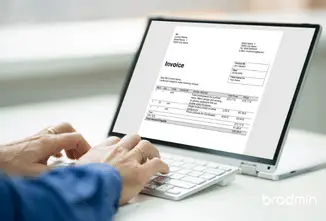Not knowing when your customers will pay is one of the most frustrating and challenging issues affecting self-employed people and businesses all over.
While starting, you want to make a good impression on your clients, and maintain long-term relationships, so you may find yourself letting payments slide and become overdue.
With time, however, this doesn’t help much, and you will end up with no cash flow and missed business opportunities as a result of late payments.
Late payments will cripple your ability to do business and will make it hard for you to grow. This is because “Cashflow is King,” and this is what drives the business. Without it, there isn’t much you can do.
You cannot pay your workers, you cannot buy more stock, you cannot pay your bills, and you cannot even maintain your business premises.
So, if you are reading this and are a new business entity, do not let payments slide. Instead, be strict with payments so you can grow.
Late payments and what you can do about them
Should you be charging interest on the late payment?
Well, this depends. The decision to charge late payment interest is never easy, and most small businesses fear the consequences of such an action.
If you feel that the client is taking advantage of you, you should consider charging them for late payments.
Late payments typically create cash flow problems for the company, increasing the risk of not being paid at all.
Using your legal right to claim interest for late-paying customers may help encourage them to pay on time.
According to the law, you have a right to charge interest per the Bank of England’s base rate and add 8%.
For example, currently, the base rate for the Bank of England is 0.1%
This means that you would charge 8.1%
The rate of calculating interest is fixed over six months.
The base rate set on 31st December was used to calculate debts between 1st January and 30th June.
Calculating the interest due to you is a straightforward process, and here’s the step-by-step process;
Start by multiplying the total amount you are owed by the rate of interest you will charge. In this case, 8.1%.
How can you start a claim against the debt?
If the client still doesn’t pay the amount they owe, it’s probably time to take legal action. But, the good news is that; small businesses do not need to get a lawyer at this time.
The UK law allows anyone who is owed money to make a statutory demand for it, but this must be done before the debt exceeds six months, and it must be done in person.
Once the client is served with a statutory demand, they are required to either pay the overdue amount in the next 21 days or come up with an agreement on how the money will be paid.
What happens next?
Now, if the 21 days lapse and payment has still not been made, you have two options;
If the amount you are owed is less than £750, you are allowed to apply to wind up or bankrupt their company, although this has to happen within the next four months of the statutory demand.
If the amount is more than £5,000, you can submit a petition for bankruptcy with the courts.
It is wise, at this point, to bring in a third party to handle the issue for you, such as a third-party mediator, a solicitor, or another advisor.
How can you protect your business from late payments?
Here are a few tips that help protect your business from late payments.
Wrap up!
What you can do with late payment is to follow it up until it is paid. This will involve plenty of exercises such as;
- Calling the customer and sending reminder emails for payment.
- Being polite when requesting the payment.
- Carefully preparing error-free invoices for your clients.
To deal with late payments, ensure that you are in good standing with your client, and preferably, the client should agree to your terms and conditions about the advance payment and any other rules regarding compensation.
If they insist on an extended payment period, then you may want to back this up with a negotiated plan, such as discounts for early payments or advances before the project starts.
All the best as you chase those invoice payments.





![Apology letter for late payment to supplier [with examples] 5 apology letter for late payment to supplier](https://brodmin.com/wp-content/uploads/2021/09/apology-letter-for-late-payment-to-supplier.webp)
![Invoice payment terms - UK edition 2022 [+ Net calculator] 6 Invoice Payment Terms UK Edition 2021](https://brodmin.com/wp-content/uploads/2021/09/Invoice-Payment-Terms-UK-Edition-2021.webp)





